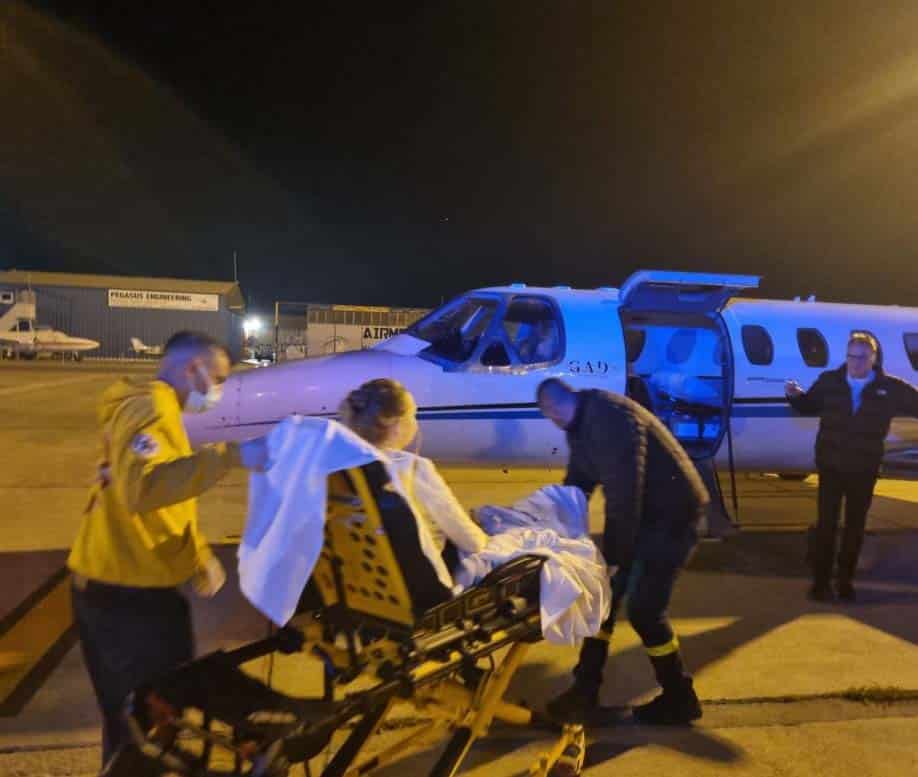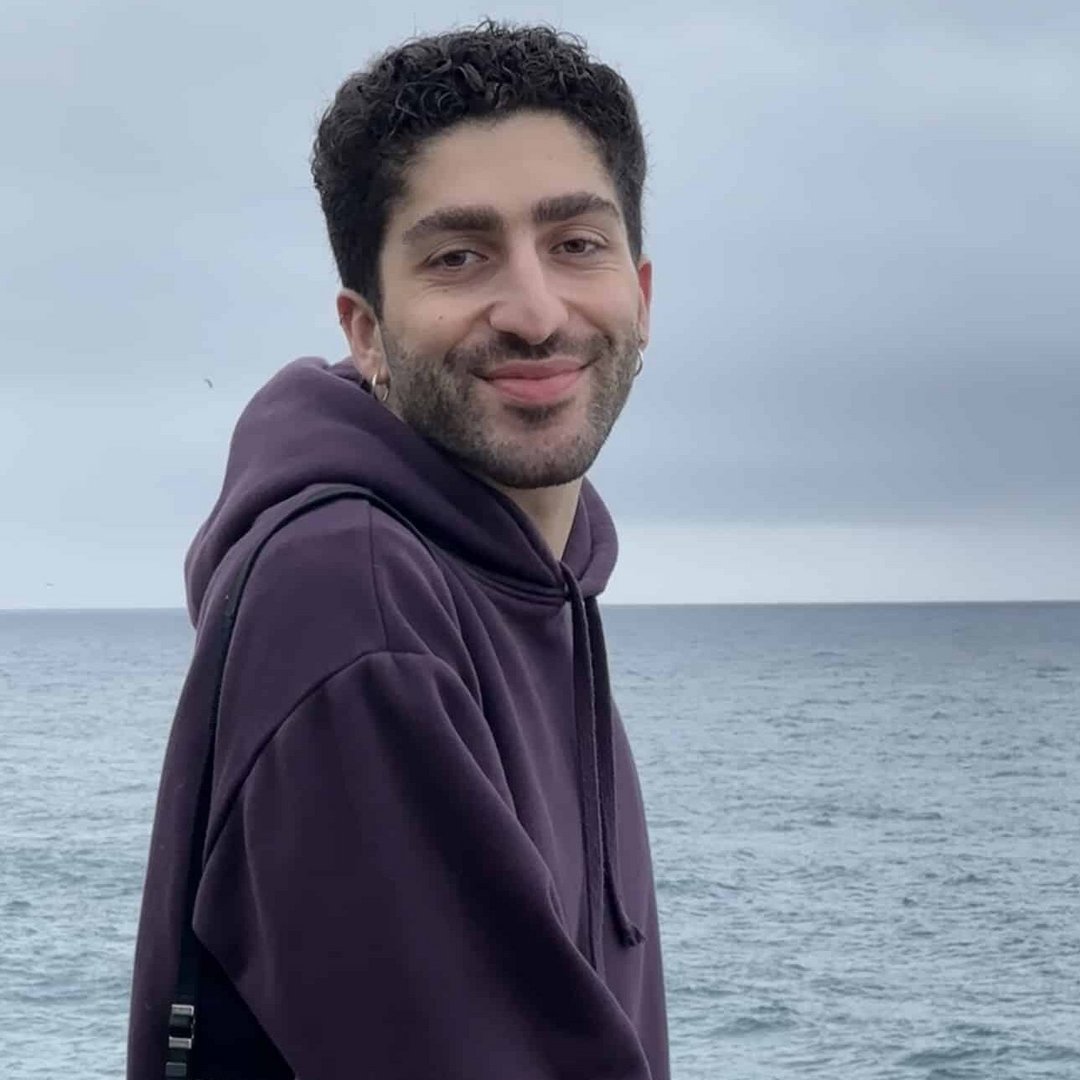A longed-for journey into motherhood for one woman took a treacherous path
Childbirth complications, ranging from pre-eclampsia to obstructed labour, remain a significant concern worldwide, affecting millions of women each year.
According to the World Health Organisation (WHO), approximately 810 women die from preventable causes related to pregnancy and childbirth every day.
Furthermore, the WHO estimates that for every woman who dies in childbirth, around 20 more experience severe complications, resulting in long-term health issues or disabilities.
Baiba Deiko’s story stands as a stark reminder of these challenges. Her harrowing experience sheds light on the global maternal mortality rate and underscores the critical need for accessible, high-quality maternal healthcare services.
“I didn’t know my long-awaited dream of having caviar and champagne on a private jet was going to be like this,” Baiba joked. Her words encapsulate the unexpected turn her childbirth experience took, leading to a 35-minute flight in an airplane ambulance to Rafael hospital in Israel, where her life hung in the balance and her body decompensated – where an organ is unable to function – from the air pressure.
At 33 years old, Baiba, originally from Latvia but residing in Cyprus for the past 12 years, awaited the arrival of her son, Noah, with eager anticipation. However, her journey into motherhood took an unforeseen and treacherous path.
What was meant to be a relaxing staycation in Paphos turned into a nightmare when Baiba was struck by excruciating pain. Pre-eclampsia, uterine contractions and vaginal bleeding led to a diagnosis of a ruptured placenta, necessitating an emergency cesarean section at 31 weeks.
During the surgery, surgeons discovered a life-threatening condition – a 1cm perforation in the posterior wall of Baiba’s stomach, resulting in a large amount of turbid fluid and fibrin in her abdominal cavity.
Noah was then taken to Makarios hospital’s ICU – the only one in the country that can house babies under 32 weeks.
However, her condition deteriorated further as she battled sepsis and complications from a complete blockage of the pylorus, leading to a staph infection and was then put into a medically induced coma.
Realising the severity of Baiba’s condition and the rarity of her case, her husband, Mitchell Eaglestein, sought out alternative solutions. Through a stroke of luck and the assistance of a mutual friend, Baiba was connected to ILMedicare who connected him to their team of top surgeons at Rafael hospital in Israel, renowned for their expertise in minimally invasive procedures.
ILMedicare, situated in Limassol, Cyprus, is a concierge private medical service dedicated to providing healthcare to expatriates and local residents who require personalised home care and medical concierge services. The ambulance plane was also booked by the organisation.
Reflecting on the experience of navigating decision-making and worrying about his wife and newborn, Eaglestein underscored the significance of proactivity in such dire circumstances.
“Being proactive was really important throughout all of this. It showed us that you have to make decisions and you’re gonna be under a lot of pressure,” he said. “It wasn’t a matter of accepting what someone’s telling you; it’s also about making your own agenda and taking drastic action. It could have backfired, but I would recommend picking a direction and going forcefully. Never assume that it’s all going to be fixed for you.”
With time running out, Baiba was swiftly transported via an ambulance plane to the Rafael hospital, where the hope of survival awaited her. Although the journey was fraught with uncertainty, the expertise of the medical team ensured her safe arrival. “They treated me like a project, like a problem that had to be solved, and I think that’s what we needed in this situation, especially after not being able to get a lot of answers,” Baiba recounted gratefully. “I started eating the day after my final surgery after a whole month on a feeding tube; I was so grateful for the help I received.”
Two weeks after her final surgery, Baiba returned to Cyprus.
“It was surreal,” Baiba said, recounting the emotional reunion with her son Noah after exactly a month of separation. “The only thing I wanted was to be there for him, but I wouldn’t have been able to do much, and that was so hard to deal with and accept.”
She couldn’t wait for the day she was home and could take care of him.
“Being helpless and not being able to shower yourself is a surreal and crazy feeling. You don’t feel human, and you keep thinking about how your child feels at the same time,” she said.
“Even now when I take him to appointments, I stay strong because I want the best for him because I know how it feels when you’re not heard at times in conditions where you’re helpless, but he’s a trooper and also very patient; I don’t know where he got that from,” Baiba laughed.
Baiba’s story serves as a poignant reminder of the fragility of life and the importance of accessible and high-quality healthcare services. As she continues her recovery journey, Baiba’s resilience and courage inspire hope.
“My message to all mothers is that maybe it’ll be easier to wait it out, but it’s important to be very proactive and do whatever you can, especially for your child.”







Click here to change your cookie preferences